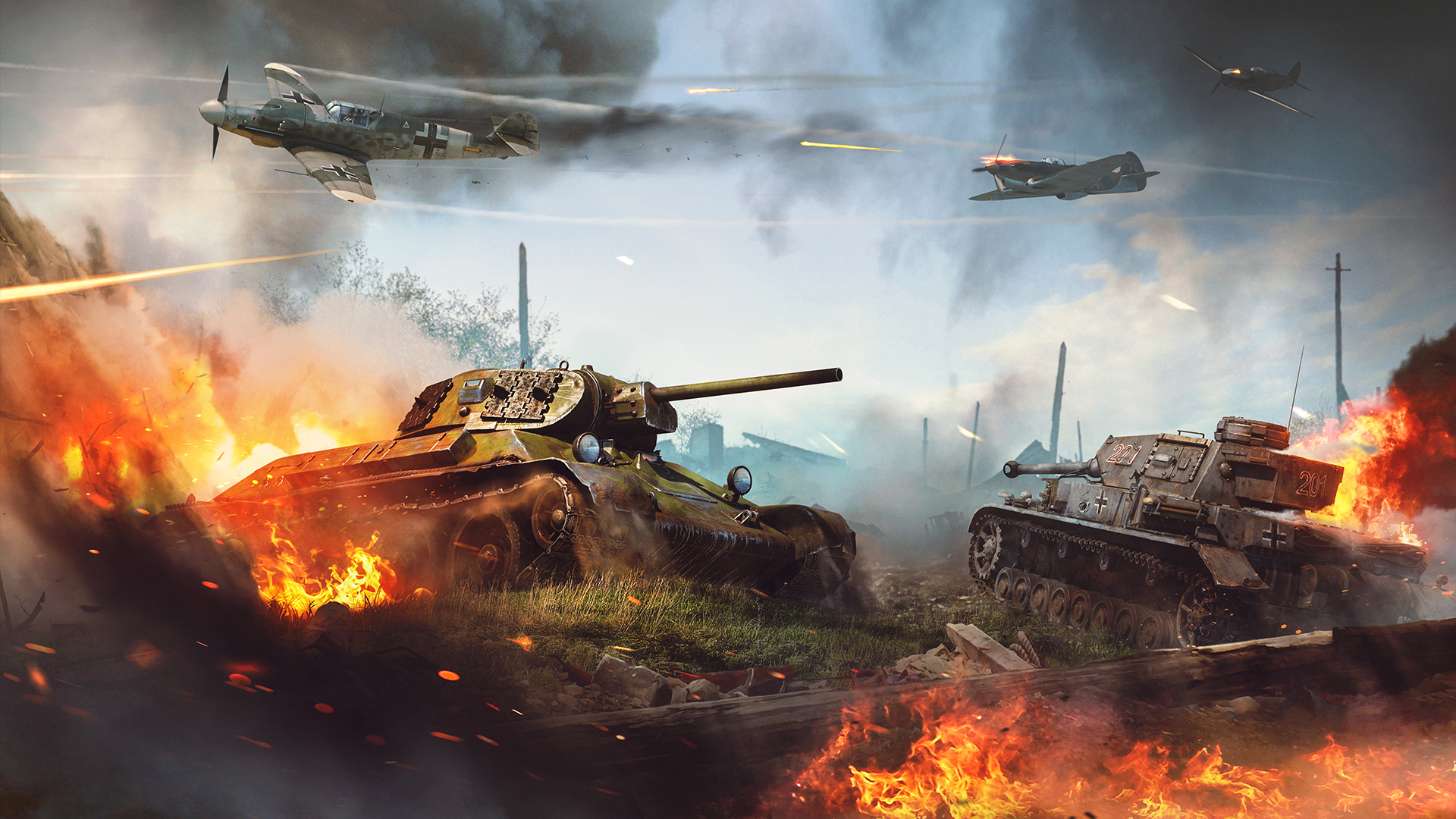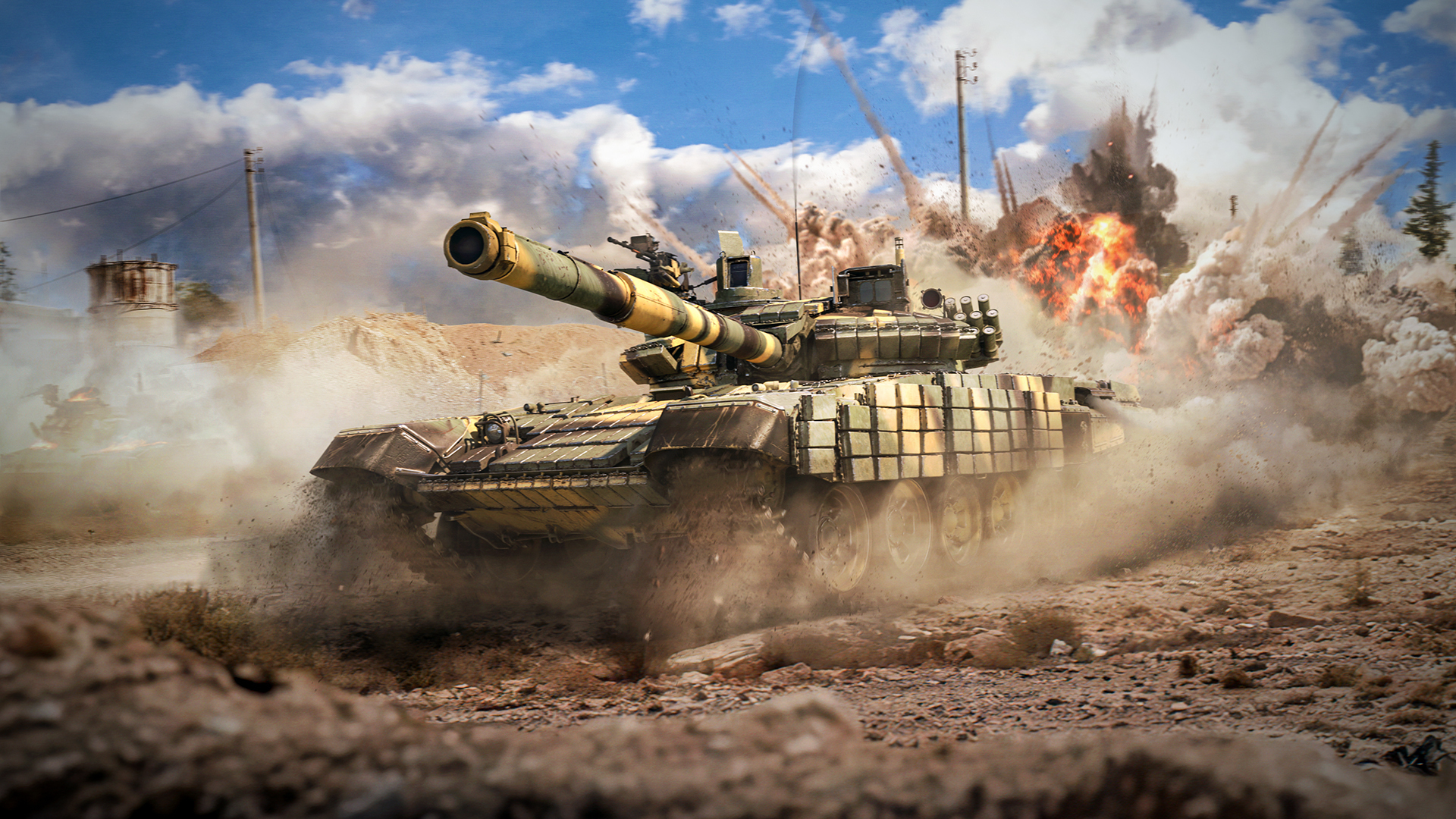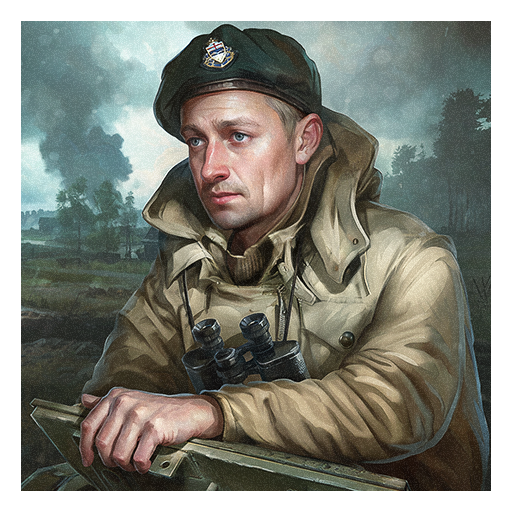over 2 years
ago -
Blitzkrieg Wulf
-
Direct link

For the whole month, you will have 8 tasks available to you one by one. Completion of each task will award you with a trophy containing a reward, while completing all tasks will award you with a unique in-game player icon.
A detailed description of the current task as well as your overall progress can be found by clicking on your nickname → Achievements → Pages of History
Reward for completing all 8 tasks
 Special profile icon of Aleksandra Samusenko Aleksandra Samusenko was a tank commander and liaison officer who fought in the Soviet army from 1941 until her death in 1945. She was the only woman who held the rank of deputy commander of a tank battalion. For her bravery in the Battle of Kursk she was awarded the Order of the Red Star. Samusenko died from her wounds on March 3rd, 1945. She’s buried in the town square of Lobez, Poland.
Special profile icon of Aleksandra Samusenko Aleksandra Samusenko was a tank commander and liaison officer who fought in the Soviet army from 1941 until her death in 1945. She was the only woman who held the rank of deputy commander of a tank battalion. For her bravery in the Battle of Kursk she was awarded the Order of the Red Star. Samusenko died from her wounds on March 3rd, 1945. She’s buried in the town square of Lobez, Poland.You can immediately purchase the profile icon for Golden Eagles until September 3rd, 11:30 GMT without completing tasks. Click Nickname → Achievements → Pages of History (August).
Trophy with a reward for each task Completion of each individual task will bring you a trophy with one of the following rewards:
- 20-50% RP booster for 3-10 battles
- 20-50% SL booster for 3-10 battles
- 3-5 universal backup vehicles
- 1 day premium account
- A random camouflage for ground vehicles (out of the selection of camouflages currently obtainable in game for completing tasks, or purchasing with Golden Eagles).
- Tasks are available from 11:00 GMT until 11:30 GMT on the final day of each task.
- Tasks can be completed in random battles, except for “Assault” mode
August 2nd — August 5th Operation Polkovodets Rumyantsev On August 3rd, 1943, the Battle of Kursk reached its final stage: the Red Army began the Belgorod-Kharkov offensive operation, named “Polkovodets Rumyantsev” after one of the most prominent Russian generals of the 18th century. The goals of the operation were met, although it came at a price. Belgorod was liberated on August 5th, and Kharkov on August 23rd. Ever since then City Day is celebrated there on those dates.
August 6th — August 9th Operation Lüttich A desperate counteroffensive by the German forces against US positions near the town of Mortain in Normandy was named Operation Lüttich after the Belgian town of Liege, the site of a German victory in early WWI. But in August of ‘44 Germany lacked enough firepower for an effective counterattack, and the Allies controlled the air. The Germans hoped to take the enemy by surprise, but that wasn’t enough: as a result they lost half of their tanks, and in a couple of weeks the entire 7th Army of Wehrmacht was encircled and surrendered to the Allies.
August 10th — August 13th Tartu offensive Having liberated Narva in late June of 1944, the Red Army moved further west, towards Tartu, Estonia’s second largest city. But instead of attacking the enemy’s well-reinforced positions head-on, the Soviet forces crossed Lake Peipus, having transported several thousand troops behind the enemy lines. This played an important part in the liberation of Tartu that finally happened on August 25th.
August 13th — August 16th Operation Eagle Attack August 13th, 1940, was marked in Wehrmacht’s plans as the Adlertag, “Eagle Day”. On this day the Luftwaffe planned to execute Operation Eagle Attack, crushing the British Air Force ahead of Operation Sea Lion that meant invasion of Great Britain by the German troops. But neither in Eagle Day nor in the next month the Luftwaffe managed to secure a decisive aerial victory. So Operation Sea Lion was canceled, and Germany instead resorted to mass bombings of Britain.
August 17th — August 20th Operation Starlite The first major military operation of US troops in Vietnam. Having received intel on the upcoming attack of Viet Cong forces on the American Chu Lai Air Base, the US command led a preemptive combined arms assault involving ground, air, and naval units. On August 18th, 1965, the Marines landed near the Viet Cong positions, leaving the enemy no chance. The surviving guerrillas were forced to retreat.
August 21st — August 24th Kozelsk offensive From August 22nd through September 10th, 1942, the Red Army led a counteroffensive under Kaluga, hoping to encircle the German forces in a small salient. The Soviet army lost 500 tanks in the fierce battles and failed to achieve their goals: the Germans were stalled but not encircled.
August 24th — August 27th Battle of Milne Bay On August 25th, 1942, the Japanese Marine forces led an attack on the Allied airfield at Milne Bay on the easternmost point of New Guinea. The Japanese command has severely underestimated the numbers of Australian troops that ultimately crushed the attackers, forcing the survivors to evacuate. It was the first major victory of the Allies over Japanese infantry in World War II.
August 28th — August 31st Battle of Alam el Halfa From August 30th through September 5th, 1942, the Axis powers under the command of General Field Marshal Erwin Rommel tried to encircle the British army to the south of El-Alamein in Egypt. It was the last major Axis offensive in Africa: Rommel hoped to crush the British until their reinforcements arrived. Little did he know that the enemy, having cracked the Enigma code, intercepts all their messages. The British baited the Axis forces to a place of their choosing, used tanks as anti-tank guns and successfully repelled the attack.

